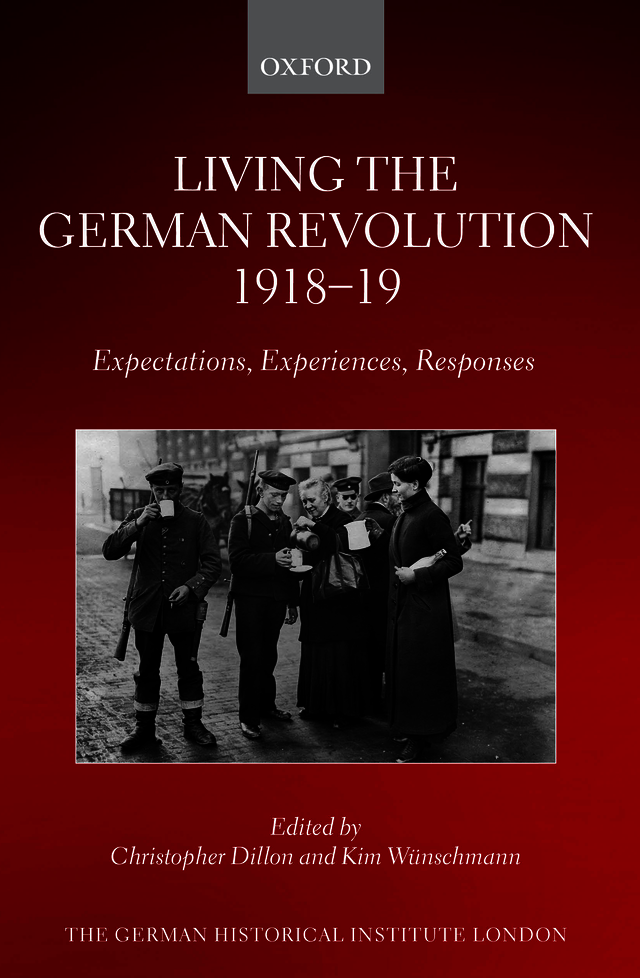
New Peer Reviewed Publication
The German Revolution of 1918–19 marks a historical turning point at which, following the catastrophe of the Great War, soldiers and civilians rose up to overthrow the German Empire's political and military leadership. The prospect of radical change evoked diverse hopes and fears in Germans young and old, female and male, rural and urban, Catholic, Protestant and Jewish.
The essays in this volume edited by Christopher Dillon (King’s College London) and Kim Wünschmann, which are all based on fresh archival research, analyse their various expectations, experiences, and responses towards the revolution. They seek to historicize the revolution not so much from above, or from below, but from within, as a lived and open-ended civic experiment. This volume's cast of protagonists encompasses sailors mobilizing in north German naval bases, women storming town halls in provincial Bavaria, youngsters pounding Hamburg dance floors on wintery evenings, factory workers savouring the new eight-hour day, publishers grappling with shifting readerships, theologians debating constitutional arrangements, and journalists writing to make sense of a world seemingly turned upside down. The essays’ collective contention is that this socio-cultural approach best registers the revolution's popular mobilization and societal penetration, its destruction of inherited patterns of authority, and, ultimately, its complex and contested legacy for the Weimar republican project.
Dillon and Wünschmann provide an insight into the research in their blog post for the GHI London in whose series "Studies of the German Historical Institute London" the book is published.


